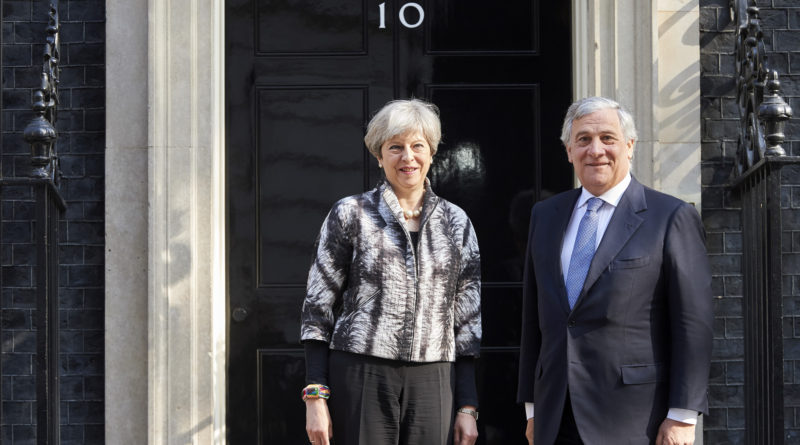Brexit negotiations, EU getting tougher about citizens rights
In preparation for Brexit talks, the European institutions are tightening their position on the status of EU citizens living in the UK and British resident elsewhere in the EU. Rights currently enjoyed by expatriates should not change in the future, argued the president of the European parliament during a visit to London on April 20. The European Council and the European Commission are studying the details of what a deal may look like in this regard.
During his trip to the UK, the president of the European parliament, Antonio Tajani, said that protecting citizens’ rights is the top priority of the Assembly. The European parliament will not be directly involved in the negotiations, but will have to approve the final deal and will veto it if people’s rights are not guaranteed, clarified Tajani. He added that a general framework on the status of citizens could be agreed within months. This should help “reduce fears”, while details will be finalised in the Brexit agreement.
After meeting with the British Prime Minister, Theresa May, Tajani told the press she also wants an early settlement on the issue. “In principle, we have the same position. This is a good message from the institutions – both of the UK and the EU – to the citizens. It is a good start, now we need to work for the implementation with Mr Barnier, our negotiator,” he said.
During the visit, Tajani also met representatives of 11 organisations dealing with citizens rights.

Meanwhile in Brussels, the European Commission and the European Council are preparing for talks with the UK. On April 29 leaders of EU countries will gather for a Council meeting to adopt the political guidelines for the negotiations. The draft was presented on March 31 by the president of the Council, Donald Tusk. Diplomats are reviewing the document based on directions from the respective countries. Bloomberg reported that EU states have been asking to tighten the language, especially with regard to citizens’ rights and the UK financial obligations.
At the same time, the European Commission is working at specific negotiating directives. A leaked version published by Politico revealed that, with regard to expatriates, the EU aims to safeguard “the status and rights derived from Union law at the withdrawal date” and “for the life time of those concerned.”
The document clarifies that the Brexit agreement should cover “workers and self-employed, and inactive persons, who have resided in the UK or EU27 before the withdrawal date, and their family members who accompany or join them at any point in time before/after the withdrawal date.”
The cumbersome procedure EU nationals face to get the permanent residence card in the UK is also under the spotlight of the European Commission. “Any document to be issued in relation to the residence rights (for example, registration certificates, residence cards or certifying documents) should have a declaratory nature and be issued under a simple and swift procedure either free of charge or for a charge not exceeding that imposed on nationals for the issuing of similar documents,” says the paper.
Finally, the Brexit agreement should include provisions for the settlement of disputes and the enforcement of the deal. When it comes to citizens’ rights, the jurisdiction of the European Court of Justice should be maintained, argues the Commission.
The EU chief Brexit negotiator Michel Barnier and the president of the European Commission, Jean-Claude Juncker, will meet Theresa May in London on April 26.
Claudia Delpero © all rights reserved.
Photos © European Union 2017 – Source: EP.




